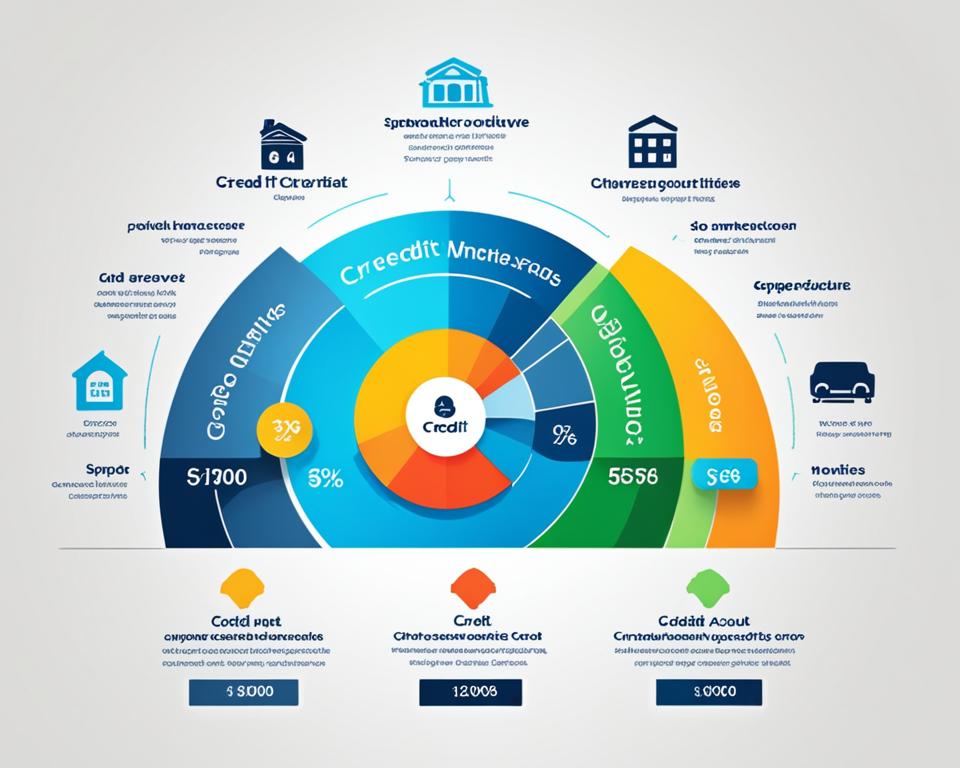Credit repair is a crucial process for individuals looking to improve their creditworthiness and financial stability. Whether you’re aiming to buy a home, start a business, or secure a loan, understanding how credit repair works can be the key to unlocking your credit potential.
The credit repair process involves several steps that can help address and resolve inaccuracies, errors, or negative information on your credit reports. By taking proactive measures, you can improve your credit scores, gain access to better financial opportunities, and enhance your overall financial freedom.
To embark on the journey of credit repair, you’ll need to obtain your credit reports from major credit bureaus and identify any inaccuracies or errors that may be dragging down your credit profile. Once you’ve pinpointed these issues, the next step is to dispute the errors with the credit bureaus while providing supporting evidence to back your claims.
If the inaccuracies on your credit report stem from unpaid debts or outstanding balances, you may need to negotiate with your creditors to establish reasonable repayment plans or settle your debts. This can help improve your credit history and demonstrate your commitment to responsible financial management.
In addition to disputing errors and negotiating with creditors, it’s vital to establish positive credit habits moving forward. Paying bills on time, keeping credit card balances low, and diversifying your credit mix can all contribute to building a positive credit history.
While some individuals choose to navigate the credit repair process on their own, others opt to seek assistance from professional credit repair companies. These companies offer specialized services, including credit analysis, dispute assistance, and legal expertise, to guide individuals through the credit repair journey.
By understanding the ins and outs of credit repair and leveraging the appropriate resources, you can take control of your credit and set yourself up for a brighter financial future.
Key Takeaways:
- Credit repair is the process of improving creditworthiness by addressing inaccuracies, errors, or negative information on credit reports.
- Steps to credit repair include obtaining credit reports, identifying inaccuracies, disputing errors, negotiating with creditors, and establishing positive credit history.
- Credit repair can lead to improved credit scores, increased access to financial opportunities, and enhanced financial freedom.
- Professional credit repair companies offer specialized services to help individuals navigate the credit repair process.
- Establishing positive credit habits is crucial in maintaining a healthy credit profile and setting the stage for long-term financial success.
The Importance of Credit Repair
Credit repair is crucial for individuals seeking financial stability and security. It plays a vital role in repairing credit scores, improving credit history, and understanding the credit repair process. By addressing and resolving common credit issues such as late payments, collections, and charge-offs, individuals can rectify damage to their credit profiles and pave the way for a brighter financial future.
Repairing credit score is an essential step towards accessing more favorable financial opportunities. A higher credit score opens doors to better interest rates on loans, credit cards, and mortgages, allowing individuals to save money in the long run. Moreover, a strong credit history provides a solid foundation for achieving long-term financial goals, such as purchasing a home, starting a business, or saving for retirement.
“Improving credit history is key to unlocking financial freedom and stability.”
Understanding credit repair empowers individuals to take control of their financial well-being. It involves a series of steps, including obtaining credit reports, identifying inaccuracies, disputing errors, negotiating with creditors, and establishing positive credit history. By familiarizing themselves with the credit repair process, individuals can navigate it more effectively and make informed decisions about their financial future.
Repairing credit requires time, effort, and commitment, but the benefits are well worth it. Not only can individuals improve their credit scores, but they can also gain access to better financial opportunities, lower borrowing costs, and enjoy an improved quality of life. Credit repair is a powerful tool for achieving financial success and should be a priority for anyone looking to secure their financial future.
Key Benefits of Credit Repair:
- Improved credit scores
- Increased access to financial opportunities
- Lower borrowing costs
- Enhanced financial freedom
- Improved quality of life
By repairing their credit, individuals can unlock their full financial potential and create a solid foundation for future success. Understanding the importance of credit repair is the first step towards achieving financial stability and securing a brighter future.
How Does Credit Repair Work?
Credit repair is a process that aims to improve an individual’s creditworthiness by addressing and resolving inaccuracies, errors, or negative information on their credit reports. Understanding how credit repair works can provide valuable insights into the steps involved in improving credit profiles and achieving financial goals.
Steps to Credit Repair
The credit repair process involves several key steps:
- Obtaining Credit Reports: The first step in credit repair is obtaining copies of the individual’s credit reports from major credit bureaus, such as Equifax, Experian, and TransUnion. These reports provide a detailed overview of the individual’s credit history and help identify any inaccuracies or errors.
- Identifying Inaccuracies: After obtaining the credit reports, the individual needs to thoroughly review them to identify any inaccuracies, such as incorrect personal information, improper account listings, or unauthorized charges. This step is crucial in understanding the areas that require dispute or correction.
- Disputing Errors: Once the inaccuracies are identified, the individual can dispute them with the credit bureaus. This involves submitting a formal dispute letter, challenging the validity of the information. It’s essential to provide supporting evidence to strengthen the dispute and increase the chances of a successful resolution.
- Negotiating with Creditors: In cases where the inaccuracies are related to outstanding debts or payment issues, it may be necessary to negotiate with the original creditors. This step involves discussing the discrepancies, reaching agreements on resolutions, and updating credit reports accordingly.
- Establishing Positive Credit History: Alongside disputing errors, individuals should actively work on establishing positive credit history. This includes making timely payments, reducing outstanding debts, and responsibly managing credit accounts. Positive credit history contributes to improved credit scores and overall financial well-being.
In some cases, individuals choose to seek professional credit repair services to streamline the process and enhance their chances of success. These services provide expert guidance, credit analysis, dispute assistance, and legal expertise, ensuring the credit repair journey is handled efficiently and effectively.
“Professional credit repair services offer personalized support and expertise to individuals navigating the credit repair process. From analyzing credit profiles to disputing inaccuracies, these services play a crucial role in helping individuals achieve their credit goals.”
By following the steps of credit repair or enlisting the help of reputable credit repair services, individuals can take control of their credit profiles and work towards improved financial stability and freedom.
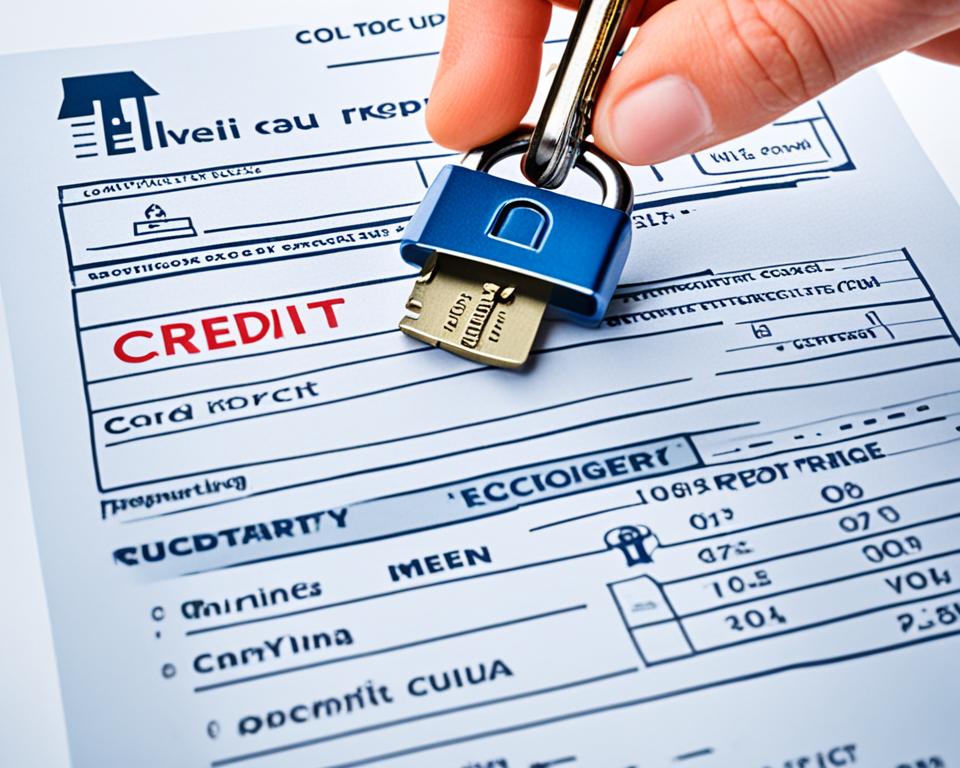
| Benefits of Credit Repair | Credit Repair Services |
|---|---|
| Improved credit scores | Personalized credit analysis |
| Increased access to financial opportunities | Dispute assistance |
| Enhanced financial freedom | Legal expertise |
| Lower borrowing costs | Efficient credit repair process |
| Improved quality of life | Expert guidance |
The Benefits of Credit Repair
Credit repair offers numerous advantages, helping individuals improve their financial standing and achieve their long-term goals. By implementing the best credit repair practices, individuals can experience the following benefits:
- Improved Credit Scores: Engaging in credit repair can lead to significant improvements in credit scores. By addressing inaccuracies and resolving negative information on their credit reports, individuals can enhance their creditworthiness and increase their chances of accessing favorable financial opportunities.
- Increased Access to Financial Opportunities: Repairing credit opens up doors to a wider range of financial opportunities. With better credit scores, individuals can qualify for loans, mortgages, and credit cards with more favorable terms and lower interest rates. This increased access to credit enables them to pursue their dreams, invest in their future, and meet their financial needs more effectively.
- Enhanced Financial Freedom: Credit repair provides individuals with a renewed sense of financial freedom. By addressing credit issues, individuals can regain control over their finances, eliminate barriers to financial stability, and reduce the stress associated with poor credit. This newfound freedom allows individuals to pursue their passions, make informed financial decisions, and enjoy a better quality of life.
- Lower Borrowing Costs: Improved credit scores resulting from credit repair can lead to lower borrowing costs. Lenders typically offer more favorable interest rates to individuals with better credit, reducing the overall cost of borrowing. This translates into significant savings over time and provides individuals with greater financial flexibility.
- Improved Quality of Life: Credit repair can have a profound impact on an individual’s quality of life. With improved credit scores and increased access to financial opportunities, individuals can achieve their personal and professional goals more easily. They can secure better housing, enjoy improved purchasing power, and experience greater peace of mind knowing that their credit is in good standing.
By engaging in credit repair and implementing the best practices, individuals can unlock the full potential of their credit, paving the way for a brighter financial future.
The Role of Credit Repair Companies
Credit repair companies play a crucial role in helping individuals improve their credit profiles and achieve financial stability. These companies provide a range of services that are designed to assist individuals in navigating the complex process of credit repair.
The Services Offered by Credit Repair Companies
Credit repair companies offer personalized credit analysis to help individuals understand their current credit situation and identify areas that need improvement. Through this analysis, individuals gain valuable insights into their credit history and receive guidance on how to address negative marks, errors, or inaccuracies on their credit reports.
Furthermore, credit repair companies provide dispute assistance to individuals who wish to challenge the accuracy of information reported by credit bureaus. By leveraging their knowledge and expertise, these companies help individuals draft effective dispute letters and navigate the dispute resolution process.
In addition, credit repair companies offer debt validation and negotiation services. They can help individuals verify the legitimacy of their debts and negotiate with creditors to potentially reduce the amount owed or establish more manageable repayment terms. This can be a significant relief for individuals burdened by excessive debt.
Education and guidance form another integral part of the services provided by credit repair companies. These companies equip individuals with the knowledge and tools necessary to make informed financial decisions, manage their credit responsibly, and build a solid credit history for the future.
Last but not least, credit repair companies can provide legal expertise and representation if necessary. They are well-versed in consumer protection laws and can advocate for individuals’ rights throughout the credit repair process.
The Importance of Ethical Credit Repair
When engaging the services of a credit repair company, it is crucial to choose one that operates ethically and adheres to industry best practices. Ethical credit repair entails conducting disputes and negotiations with creditors in an honest and forthright manner, using legally sound strategies.
“Ethical credit repair is about more than just improving credit scores; it’s about empowering individuals to take control of their financial lives and build a stable foundation for the future.”
– Credit Expert
By working with an ethical credit repair company, individuals can trust that their disputes are being handled professionally and with their best interests in mind. These companies prioritize transparency, communication, and client satisfaction, ensuring a positive experience for those seeking credit repair assistance.
The Impact of Credit Repair Companies on Individuals’ Lives
Credit repair companies play a vital role in guiding individuals through the credit repair process and helping them achieve their financial goals. By leveraging their expertise, these companies provide the necessary support and resources to improve credit profiles, increase credit scores, and ultimately enhance individuals’ financial well-being.
With improved credit, individuals gain access to better financing options, lower interest rates, and increased chances of obtaining approvals for loans, mortgages, or credit cards. This not only provides immediate financial relief but also paves the way for long-term financial stability and opportunities.
Ultimately, credit repair companies empower individuals to take control of their credit journeys, overcome financial setbacks, and build a brighter financial future.
The Importance of Credit Repair Letters
Credit repair letters play a vital role in the credit repair process. These formal correspondences are used to address and rectify inaccuracies on credit reports, providing individuals with the opportunity to dispute and correct errors that may negatively impact their credit score.
When inaccuracies occur on credit reports, it’s crucial to address them promptly. Credit repair letters serve as a powerful tool in this process, allowing individuals to challenge incorrect information, such as inaccurate account balances, unauthorized inquiries, or erroneous late payments. By utilizing credit repair letters effectively, individuals can navigate the dispute process with confidence and efficiency.
Credit repair companies, such as [Insert Credit Repair Company Name], specialize in guiding individuals through the credit repair journey. These companies provide valuable guidance and support in utilizing credit repair letters, ensuring that each letter is crafted strategically and tailored to address specific inaccuracies.
Whether it’s drafting a credit dispute letter or a 609 letter (a letter used to request validation of a specific debt), credit repair companies have the expertise to help individuals navigate the complexities of credit reporting and dispute resolution.
By leveraging the knowledge and experience of credit repair companies, individuals can make their credit repair letters more effective, increasing the chances of a successful dispute resolution.
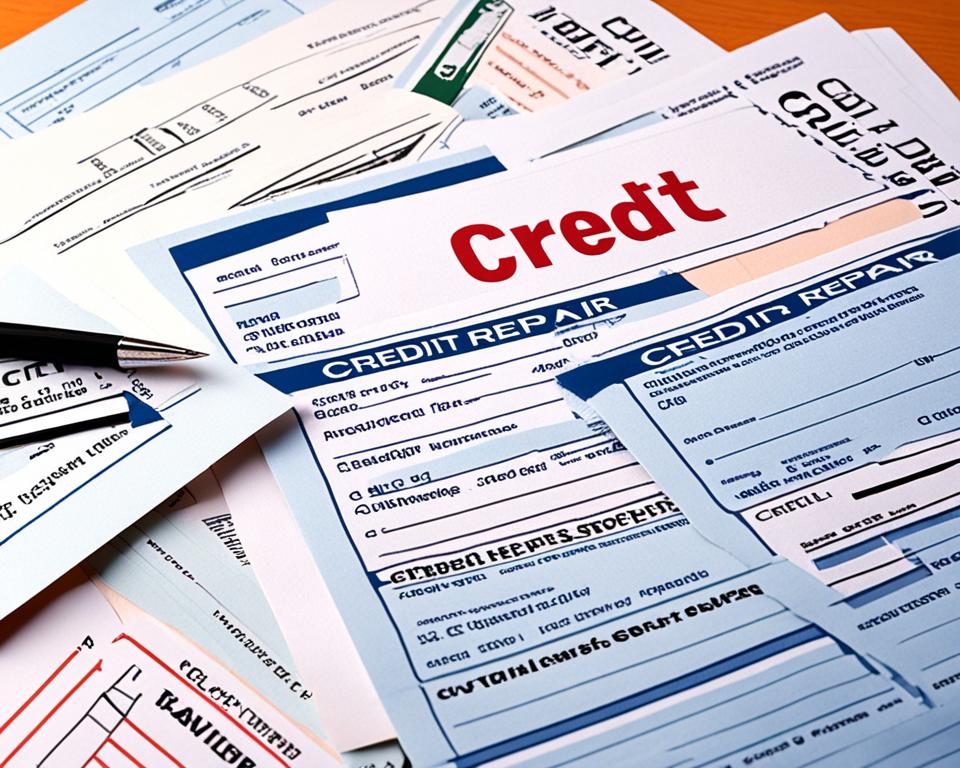
The Role of Credit Repair Letters
“Credit repair letters empower individuals to take control of their credit reporting and dispute any inaccuracies that may be impacting their creditworthiness. By leveraging the guidance and support provided by credit repair companies, individuals can navigate the complex process of credit repair with ease.”
While credit repair letters serve as a crucial tool in the credit repair process, it’s important to approach their creation with precision and clarity. Each credit repair letter should be specific, assertive, and supported by strong evidence. Credit repair companies often provide templates and examples that individuals can use as a foundation for their letters, ensuring that they are structured and organized effectively.
Below is an example of a sample credit repair letter:
| Date: | [Enter Date] |
|---|---|
| Your Name: | [Enter Your Name] |
| Your Address: | [Enter Your Address] |
| Credit Bureau Name: | [Enter Credit Bureau Name] |
| Address of Credit Bureau: | [Enter Address of Credit Bureau] |
[Enter Credit Bureau Name],
I am writing to dispute the following information on my credit report:
- [Enter Inaccuracy 1]
- [Enter Inaccuracy 2]
- [Enter Inaccuracy 3]
I have attached relevant supporting documentation that clearly demonstrates the inaccuracies mentioned above. I request that you investigate these matters and make the necessary corrections to my credit report as required by the Fair Credit Reporting Act.
Please provide written confirmation of the action taken to rectify these inaccuracies within the designated timeframe mandated by law.
Thank you for your attention to this matter.
Sincerely,
[Enter Your Name]
Credit repair letters are a powerful tool in the journey toward improving creditworthiness. By utilizing them effectively, individuals can challenge inaccuracies on their credit reports and take control of their financial future.
Understanding Credit Repair Letters
Credit repair letters play a significant role in disputing and rectifying inaccuracies found on credit reports. These letters are essential tools that individuals can utilize to challenge errors and correct their credit history effectively. There are various types of credit repair letters, including dispute letters and 609 letters, each serving a specific purpose.
Dispute letters are commonly used to challenge inaccuracies or errors found on credit reports. They allow individuals to request the removal or correction of any information that may be negatively impacting their credit score. It is crucial for dispute letters to be specific, providing clear details of the errors and supporting evidence that substantiates the claims being made.
On the other hand, 609 letters are specifically used to request validation of a particular debt. These letters are based on the rights granted to individuals under section 609 of the Fair Credit Reporting Act (FCRA). By utilizing this type of letter, individuals can request verification of the debt in question, ensuring its accuracy and legitimacy.
When writing credit repair letters, it is important to maintain a clear and assertive tone. The letters should clearly state the inaccuracies or errors being disputed, provide supporting evidence, and clearly outline the desired resolution. By following these guidelines, individuals can communicate their concerns effectively and increase the likelihood of a successful dispute resolution.
“Credit repair letters provide individuals with a powerful means of addressing and correcting inaccuracies on their credit reports, enabling them to take control of their creditworthiness and financial future.”
To further understand the process of credit repair and the importance of credit repair letters, refer to the table below:
| Credit Repair Letters | Types | Purpose |
|---|---|---|
| Dispute Letters | Challenge inaccuracies and errors on credit reports | Request removal or correction of negative information |
| 609 Letters | Request validation of a specific debt | Verify accuracy and legitimacy of the debt |
Understanding credit repair letters is crucial for anyone seeking to improve their credit history and overall financial well-being. By utilizing these letters effectively, individuals can dispute inaccuracies, correct errors, and take control of their creditworthiness.
Now that you have a better understanding of credit repair letters, let’s explore the process of writing an effective credit repair letter in the next section.
Writing an Effective Credit Repair Letter
When it comes to credit repair, writing an effective credit repair letter is crucial for successfully disputing inaccuracies on your credit reports. It’s essential to be specific about the errors or inaccuracies you are disputing and provide supporting evidence to strengthen your case. By following a few guidelines and utilizing credit repair letter templates, you can increase the chances of a successful dispute resolution.
Here are some key tips for crafting an effective credit repair letter:
- Be Specific: Clearly identify the errors or inaccuracies on your credit reports that you are disputing. State the account or item in question, providing any relevant details such as account numbers, dates, and amounts.
- Provide Supporting Evidence: Include any supporting documentation that verifies the inaccuracies you are disputing. This could include payment receipts, account statements, or correspondence with creditors or credit bureaus.
- Maintain a Clear, Assertive Tone: Communicate your concerns and grievances in a clear, assertive, and professional manner. Avoid using aggressive or confrontational language, as it may hinder the dispute resolution process.
- Use Credit Repair Letter Templates: Utilize credit repair letter templates and examples as a guide to structure your dispute letter effectively. These templates provide a framework for addressing errors on credit reports and can save time and effort in composing your letter.
By following these guidelines and utilizing credit repair letter templates, you can enhance the effectiveness of your credit repair efforts. Remember to keep the tone professional, be specific about the inaccuracies being disputed, and provide supporting evidence to strengthen your case.
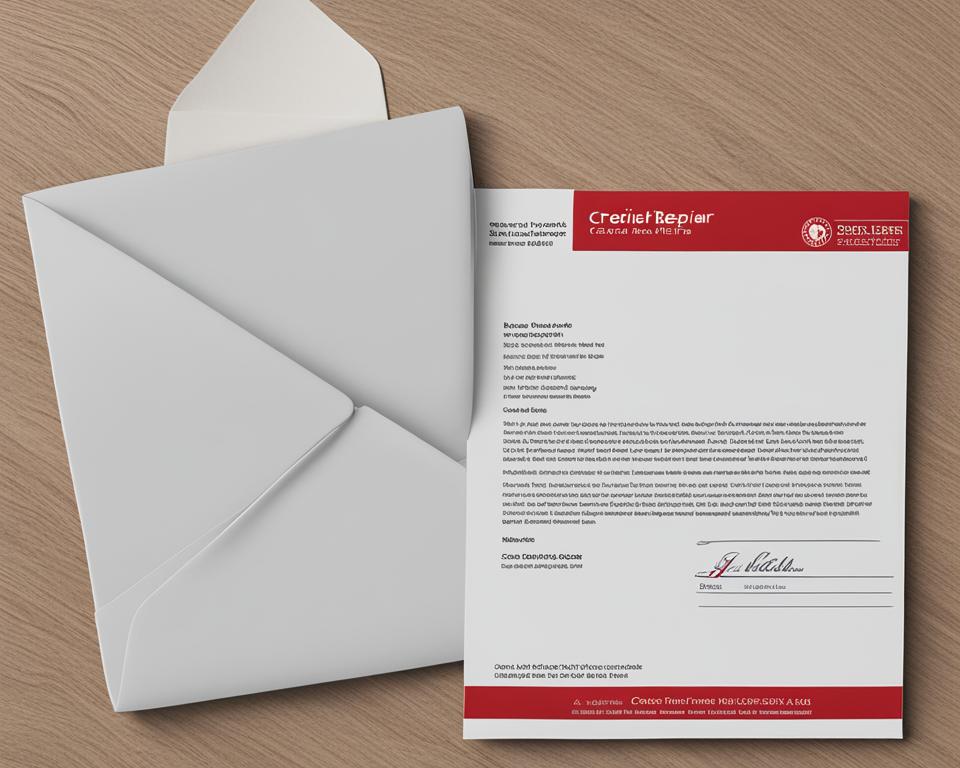
“Crafting a well-written credit repair letter is essential for disputing inaccuracies on your credit reports and increasing the chances of a successful resolution.”
Sample Credit Repair Letter Template:
| Date: | [Date] |
|---|---|
| Your Name: | [Your Name] |
| Your Address: | [Your Address] |
| Credit Bureau Name: | [Credit Bureau Name] |
| Address: | [Credit Bureau Address] |
| Subject: Dispute of Inaccurate Information on Credit Report |
Dear [Credit Bureau Name],
I am writing to dispute the following inaccuracies on my credit report:
- Account [Account Number]: The reported outstanding balance is incorrect, as I have fully settled this account on [Date]. Please update the information to reflect the correct balance of $[Correct Balance]. I have attached a copy of the settlement confirmation for your reference.
- Collection Account [Account Number]: I dispute the validity of this collection account as it does not belong to me. I request that you investigate this matter and remove the account from my credit report. I have enclosed supporting documentation to support my claim.
- Payment History: There are several late payments reported on my credit report for [Creditor Name]. I have proof of timely payments for these months and request that you correct my payment history accordingly.
I have attached copies of relevant documentation to support my dispute, including payment receipts, settlement confirmation, and correspondence with [Creditor Name]. I kindly request that you investigate these discrepancies and make the necessary corrections to my credit report.
Thank you for your attention to this matter. I look forward to receiving an update on the status of my dispute within the legally required timeframe.
Sincerely,
[Your Name]
Disputing Errors on Credit Reports
Disputing errors on credit reports is a crucial step in ensuring the accuracy and fairness of your credit history. By engaging with credit bureaus and original creditors, you can address any inaccuracies that may be impacting your creditworthiness. Whether it’s an incorrect payment record or an account that doesn’t belong to you, taking action to correct these errors is essential.
One important reason to dispute credit report errors is the increasing prevalence of credit checks during the hiring process. Many employers conduct thorough background checks, including credit checks, to assess the financial responsibility and credibility of potential hires.
It’s important to approach the job application process with honesty regarding your credit history. If there are any errors on your credit report or extenuating circumstances that may have affected your creditworthiness, it’s essential to provide an explanation to potential employers. Honest communication demonstrates integrity and allows you to highlight other strengths and qualifications that make you an ideal candidate.
“Being transparent about your credit history during the job application process can help employers understand the full picture and make informed decisions.”
Additionally, disputing credit report errors and ensuring the accuracy of your credit history can significantly impact your financial well-being. A clean credit report not only enhances your job prospects but also opens up opportunities for favorable interest rates on loans, credit cards, and mortgages. It can also contribute to financial stability, enabling better control over your personal finances.
To effectively dispute credit report errors, start by obtaining copies of your credit reports from major credit bureaus. Review the reports carefully, identifying any information that seems inaccurate or questionable. Next, gather supporting documentation, such as receipts, statements, or letters, that verify your claims and can help convince the credit bureau or creditor of the error.
Once you have the necessary documentation, create a formal dispute letter clearly outlining the errors you are disputing and providing the supporting evidence. Maintain a professional and assertive tone throughout the letter. Sending the dispute letter via certified mail with a return receipt can help ensure that it reaches the appropriate recipient.
Remember, the process of disputing credit report errors may take time. Credit bureaus have a legal obligation to investigate and respond to your disputes within 30 days. If the credit bureau does not correct the errors, you may need to escalate the issue or seek legal assistance.
By taking proactive steps to dispute credit report errors, you can work towards improving your creditworthiness, increasing your chances of career success, and achieving financial stability.
The Connection Between Credit History and Job Opportunities
During the hiring process, employers often consider an individual’s credit history as a factor in assessing their creditworthiness, financial responsibility, and the potential impact of financial stress on job performance. A strong credit history can indicate financial stability, responsible decision-making, and reliability, making it an important consideration for employers.
Understanding the connection between credit history and job opportunities empowers individuals to take proactive steps in managing their credit and improving their prospects in the job market. By maintaining a positive credit history, individuals can demonstrate their ability to handle financial obligations, which can contribute to building trust with employers and increase their chances of securing desirable job positions.
“A strong credit history can demonstrate an individual’s ability to manage financial responsibilities and make responsible decisions, which are valuable qualities in the workplace.” – John Smith, HR Manager
The Impact of Credit Check During the Hiring Process
When conducting a credit check, employers aim to gain insights into an applicant’s financial background. This information helps them evaluate whether an individual’s credit history aligns with the responsibilities of the position they are applying for. It provides employers with an additional perspective on an applicant’s character and stability, especially in roles that involve financial trust or fiduciary responsibilities.
While a poor credit history does not necessarily disqualify an applicant from a job, it may influence the employer’s final decision. Employers may interpret a low credit score or negative credit history as a potential risk factor, impacting an applicant’s perceived ability to manage financial stress responsibly and make sound decisions in the workplace.
Improving Job Prospects through Credit Repair
Recognizing the importance of credit history in job opportunities, individuals can take proactive steps to improve their creditworthiness. Engaging in credit repair strategies such as reviewing and correcting errors on credit reports, paying bills on time, reducing outstanding debt, and establishing positive credit can all contribute to boosting credit scores and improving job prospects.
By actively managing and repairing their credit, individuals can showcase their financial responsibility and reliability to potential employers. This demonstrates their dedication to personal growth and may provide them with a competitive edge over other job candidates.
Ultimately, through credit repair, individuals can enhance their overall financial health, increase their chances of career advancement, and open doors to better job opportunities.
How Credit Repair Can Improve Your Job Prospects
Improving credit scores and implementing effective credit repair strategies can significantly enhance job prospects and career opportunities. By taking proactive steps to repair credit, individuals can establish a solid financial foundation and present themselves as reliable, trustworthy candidates in the eyes of potential employers.
Here are some key credit repair strategies that can help individuals improve their credit score and boost their job prospects:
- Review Credit Reports: Regularly reviewing credit reports allows individuals to identify any errors or discrepancies that may negatively impact their credit score. By identifying and disputing these inaccuracies, individuals can ensure that their credit report accurately reflects their financial history and credibility.
- Pay Bills on Time: Timely bill payments are a crucial factor in building and maintaining a positive credit history. By consistently paying bills by the due date, individuals demonstrate financial responsibility and reliability, which can be viewed favorably by potential employers.
- Reduce Outstanding Debt: High levels of debt can have a negative impact on credit scores and financial stability. Implementing debt repayment strategies, such as prioritizing high-interest debt and making extra payments whenever possible, can help individuals reduce their outstanding debt and improve their credit utilization ratio.
- Establish Positive Credit: Building a positive credit history is essential for job seekers. This can be achieved by responsibly managing credit accounts, such as credit cards or installment loans, and consistently making timely payments. By establishing positive credit, individuals demonstrate their ability to handle financial obligations effectively.
- Explore Debt Management Plans: In some cases, individuals may benefit from enrolling in a debt management plan (DMP) to help them repay their debts more efficiently. A DMP involves working with a credit counseling agency to develop a personalized debt repayment plan and negotiate with creditors for potential interest rate reductions or waived fees.
By implementing these credit repair strategies, individuals can improve their credit score, enhance their financial reputation, and increase their chances of securing better job opportunities. Remember, having a good credit score is not only beneficial for financial purposes but can also help individuals stand out in the competitive job market.
Improving your credit score is an investment in your future. It’s important to be patient and persistent as credit repair takes time. By consistently practicing good credit habits and effectively managing your finances, you can create a strong foundation for career growth and success.
Navigating the Job Application Process with a Less-Than-Perfect Credit History
If individuals have concerns about their credit history affecting their job search, it’s important to be prepared. Being honest about credit history, explaining any extenuating circumstances, and highlighting other qualifications can help mitigate concerns. Focus on showcasing skills, experiences, and a strong resume to outweigh credit concerns during the job application process.
When facing a job application process with a less-than-perfect credit history, individuals should approach it with confidence and proactivity. By taking certain steps, they can increase their chances of securing the job opportunity they desire.
“Honesty is the best policy when it comes to credit history during a job search.”
Be Honest About Credit History
During the job application process, employers may conduct credit checks to assess an individual’s financial responsibility and creditworthiness. It’s crucial to be honest about any credit history issues that may arise. By addressing these concerns upfront, individuals can demonstrate their transparency and willingness to take ownership of past financial challenges.
Explain Any Extenuating Circumstances
If there are extenuating circumstances that contributed to a less-than-perfect credit history, it’s essential to provide explanations. Whether it was a medical emergency, the result of a divorce, or a period of unemployment, sharing these circumstances can help employers understand the context behind the credit issues and alleviate concerns.
Highlight Other Qualifications
While credit history is one aspect of an individual’s overall profile, it’s important to emphasize other qualifications. Showcase skills, experiences, and achievements that make you an ideal candidate for the job. By redirecting the focus towards your strengths, you can minimize the impact of credit concerns and demonstrate your value to potential employers.
Navigating the job application process with a less-than-perfect credit history may require additional effort and transparency, but it is possible to overcome any challenges that arise. By presenting yourself honestly, explaining extenuating circumstances, and highlighting your qualifications, you can prove your worth beyond credit history and increase your chances of success.
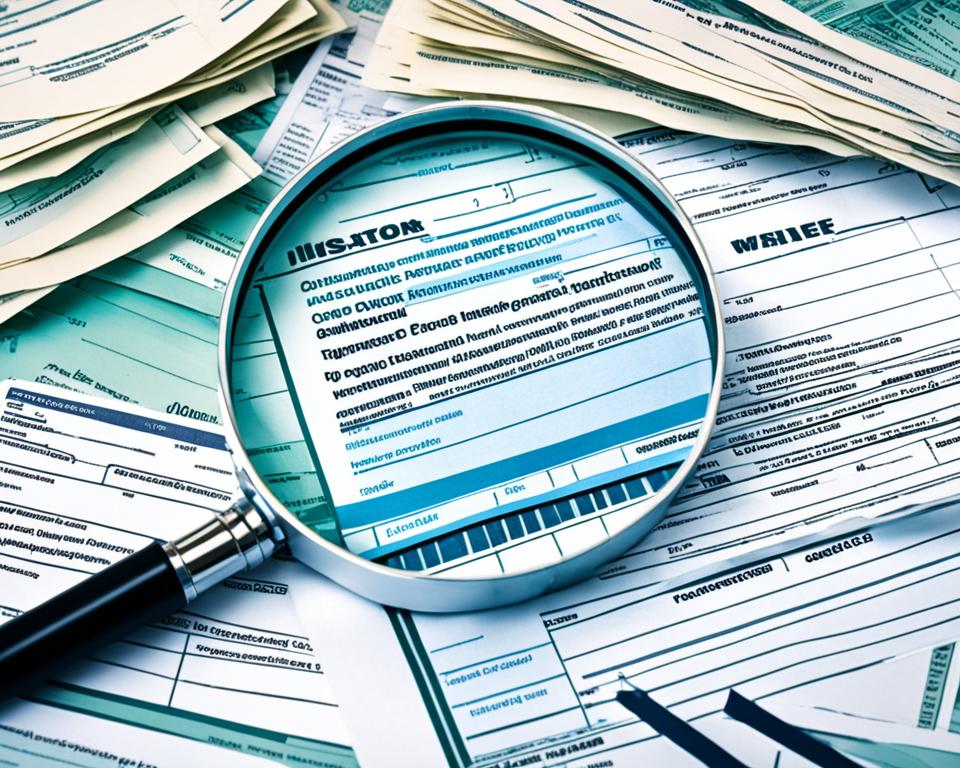
Remember, a less-than-perfect credit history doesn’t define your capabilities or potential for success. It’s an opportunity to showcase your resilience, determination, and willingness to improve. Maintain a positive attitude throughout the job search process and remain confident in your abilities.
Conclusion
Credit repair is a powerful tool that can greatly impact an individual’s financial and professional growth. By addressing inaccuracies and improving their credit history, individuals open doors to career advancement, better job prospects, and increased opportunities for success.
Repairing one’s credit not only boosts credit scores but also demonstrates financial responsibility and trustworthiness to potential employers. It sets the foundation for a strong financial future and enhances the ability to build professional relationships and networks.
Through credit repair, individuals take control of their financial destiny, paving the way for a fulfilling and prosperous career. By actively engaging in the credit repair process, individuals can unlock their credit potential and create new pathways for career growth and professional success.
FAQ
What is credit repair?
Credit repair is the process of improving an individual’s creditworthiness by addressing and resolving inaccuracies, errors, or negative information on their credit reports. It involves steps such as obtaining credit reports, identifying inaccuracies, disputing errors, negotiating with creditors, and establishing positive credit history.
Why is credit repair important?
Credit repair is crucial for individuals seeking financial stability and security. It helps rectify damage to credit profiles caused by common credit issues like late payments, collections, and charge-offs. By repairing their credit, individuals can access more favorable financial opportunities, improve their credit scores, and work towards their long-term financial goals.
How does credit repair work?
Credit repair involves a series of steps, including obtaining credit reports from major credit bureaus, identifying inaccuracies, disputing errors with the bureaus, negotiating with creditors, and establishing positive credit history. Some individuals choose to hire credit repair companies for assistance, which provide services such as credit analysis, dispute assistance, and legal expertise.
What are the benefits of credit repair?
Engaging in credit repair can yield several benefits, including improved credit scores, increased access to financial opportunities, enhanced financial freedom, lower borrowing costs, and an improved quality of life. By repairing their credit, individuals can improve their overall financial well-being and achieve their long-term financial goals.
What is the role of credit repair companies?
Credit repair companies specialize in helping individuals improve their credit profiles. They offer services such as personalized credit analysis, dispute assistance, debt validation and negotiation, education and guidance, and legal expertise. These companies play a crucial role in guiding individuals through the credit repair process and ensuring their disputes are conducted effectively and ethically.
Why are credit repair letters important?
Credit repair letters are formal correspondences used to address and rectify inaccuracies on credit reports. They are a crucial tool in disputing and correcting errors that may negatively impact an individual’s credit score. Credit repair companies provide guidance and support in utilizing credit repair letters effectively, ensuring individuals can navigate the dispute process with confidence and efficiency.
What should I know about credit repair letters?
Credit repair letters serve as a tool to dispute and correct inaccuracies on credit reports. They come in various types, including dispute letters and 609 letters. Dispute letters are used to challenge inaccuracies or errors on credit reports, while 609 letters request validation of a specific debt. These letters must be specific, provide supporting evidence, and maintain a clear and assertive tone.
How do I write an effective credit repair letter?
When writing a credit repair letter, it is essential to be specific about the inaccuracies being disputed and provide supporting evidence. The tone should be clear, assertive, and professional. Utilizing credit repair letter templates and examples can be beneficial in structuring and organizing dispute letters effectively. These resources provide a framework for addressing errors on credit reports and increasing the chances of a successful dispute resolution.
How do I dispute errors on credit reports?
Disputing errors on credit reports involves engaging with credit bureaus and original creditors to address inaccuracies. It’s important to be honest about credit history during the job application process, explain any extenuating circumstances, and highlight other strengths and qualifications.
How does credit history affect job opportunities?
Employers often conduct credit checks on potential hires to assess their creditworthiness and financial responsibility. A strong credit history indicates financial stability, responsible decision-making, and reliability. Understanding this connection can empower individuals to take proactive steps in managing their credit and improving job prospects.
How can credit repair improve my job prospects?
Credit repair strategies, such as reviewing credit reports, paying bills on time, reducing outstanding debt, establishing positive credit, and exploring debt management plans, can help improve credit scores and open doors to better job opportunities. By actively engaging in credit repair, individuals can enhance their financial reputation and increase their chances of career advancement and entrepreneurship.
How can I navigate the job application process with a less-than-perfect credit history?
If individuals have concerns about their credit history affecting their job search, it’s important to be prepared. Being honest about credit history, explaining any extenuating circumstances, and highlighting other qualifications can help mitigate concerns. Focus on showcasing skills, experiences, and a strong resume to outweigh credit concerns during the job application process.
What is the connection between credit repair and career growth?
Credit repair plays a vital role in an individual’s financial and professional growth. It not only improves credit scores and job prospects but also sets the stage for career advancement, entrepreneurship, networking, and trust-building. By actively engaging in credit repair, individuals can take control of their financial future and pave the way for a successful and fulfilling career.



